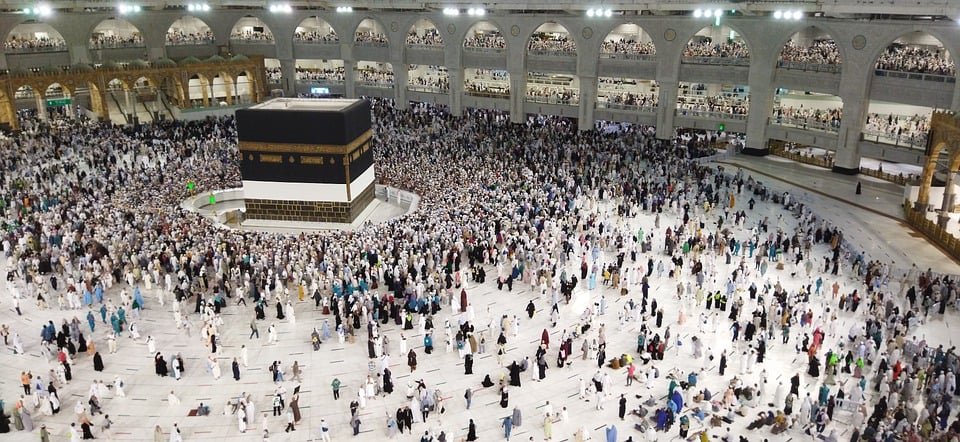Understanding the Zuhr Prayer: A Simple Guide
If you’re looking for a clear and reliable guide on the zuhr prayer, you’ve come to the right place. The zuhr prayer is one of the five daily prayers in Islam, performed in the early afternoon. It holds great importance, and I think many Muslims, especially those new to prayer, often have questions about its timing, rak’ahs, and sunnah acts. In this article, I’ll walk you through everything you need to know about the zuhr prayer, from its significance to the correct way to perform it. Whether you’re just starting or need a refresher, I feel confident this guide will help you pray with ease and confidence.
At Hajj2026.org, we’ve been helping Muslims with accurate Islamic information since 2016—that’s nine years of experience in guiding travelers for Umrah and trips to Makkah and Madinah. Our team deeply understands the needs of worshippers, and in my opinion, that’s why we’re trusted for practical, easy-to-follow advice. When it comes to the zuhr prayer, we make sure our guidance is simple, well-researched, and aligned with authentic sources. So, if you’re looking for a trustworthy resource, stick with us—we’ve got you covered!
Zuhr Prayer Time Benefits and How to Perform Correctly
Prayer is a beautiful way to connect with Allah, and the Zuhr prayer holds special significance in our daily worship. As the sun reaches its peak, this midday prayer offers a moment of peace and reflection in our busy lives. Whether you’re a child learning Salah or an adult perfecting your routine, understanding the benefits and proper method of Zuhr prayer can deepen your spiritual experience.
At Hajj2026.org, we’ve been guiding travelers for Umrah and visits to Makkah and Madinah since 2016. While we don’t directly organize Hajj or Umrah, we work with trusted tour operators to ensure smooth journeys. Today, let’s explore the beauty of Zuhr prayer together—its blessings, timing, and step-by-step performance.
What Is the Zuhr Prayer?
The Zuhr prayer is the second of the five daily Salah in Islam, performed after the sun passes its zenith. It consists of four Rak’ahs (units) and serves as a spiritual break during the day. I think of it as a reset button—helping us pause, refocus, and seek Allah’s mercy before continuing our tasks.
Many people rush through Zuhr due to work or school, but taking time to pray properly brings immense rewards. The Prophet Muhammad (PBUH) emphasized its importance, and scholars highlight its role in maintaining discipline and mindfulness. Whether at home, work, or school, finding a quiet space for Zuhr can make a big difference in your day.
The Best Time to Perform Zuhr Prayer
Zuhr time begins right after the sun starts declining from its highest point and lasts until Asr. This window usually spans a few hours, giving flexibility to those with busy schedules. However, praying early is highly recommended—it shows eagerness in worship and prevents delays that might lead to missing Salah altogether.
In my opinion, setting a reminder or alarm helps in staying consistent. I’ve noticed that when I pray Zuhr on time, my afternoon feels more organized. The exact timing varies by location, so checking a reliable prayer app or local Masjid announcements ensures accuracy. At Hajj2026.org, we always remind travelers to stay mindful of Salah times, especially when visiting holy cities.
Spiritual and Physical Benefits of Zuhr Prayer
Beyond its religious obligation, Zuhr prayer offers incredible benefits. Spiritually, it strengthens our bond with Allah, purifies intentions, and serves as a shield against wrongdoing. Physically, the movements of Salah—standing, bowing, and prostrating—improve blood circulation and relieve stress from prolonged sitting.
I feel that Zuhr acts like a midday recharge. When work or studies drain energy, these few minutes of devotion bring tranquility. The Prophet (PBUH) mentioned that those who perform Zuhr diligently will have their sins erased like "freshly washed clothes." Isn’t that a beautiful image? Making this prayer a habit can transform both our hearts and daily productivity.
Step-by-Step Guide to Performing Zuhr Correctly
Performing Zuhr correctly starts with a sincere intention (Niyyah) in your heart. Begin by facing the Qiblah, raising your hands to your ears, and saying "Allahu Akbar." Recite Surah Al-Fatihah followed by another Surah in the first two Rak’ahs. After bowing (Ruku) and prostrating (Sujood), sit for Tashahhud before completing the Salah with Tasleem.
If you’re new to Salah, take it slow. I remember struggling with memorization at first, but repetition made it easier. Children can start with shorter Surahs and gradually learn more. The key is consistency—Allah appreciates effort, not perfection. For those traveling, combining prayers (Qasr) is permitted, but always prioritize performing Salah on time.
Common Mistakes to Avoid During Zuhr Prayer
One common mistake is rushing through recitation or movements. Salah is about mindfulness, not speed. Another error is neglecting proper Wudu—without it, Salah isn’t valid. I’ve seen people forget to straighten their backs in Ruku or place their foreheads firmly in Sujood. Small corrections enhance the quality of worship.
Distractions are another challenge. The mind may wander to chores or worries, but gently refocusing on Allah’s presence helps. Even the Prophet (PBUH) advised seeking refuge from Shaytan if thoughts intrude. Keeping a prayer mat in a clean, quiet space minimizes disruptions, making Zuhr more meaningful.
Encouraging Kids to Love Zuhr Prayer
Teaching children Salah early builds a lifelong connection with worship. Make it fun—use colorful prayer mats, simple stories of Prophet Muhammad (PBUH), or reward charts. I’ve found that kids imitate adults, so praying together sets a powerful example. Start with short sessions and gradually increase as they grow.
Explain the beauty of Zuhr in ways they understand: "It’s like a break to thank Allah for the morning and ask for help in the afternoon." At Hajj2026.org, we’ve seen families bond over Salah during Umrah trips—children learning alongside parents create unforgettable memories. Patience and encouragement go a long way!
Final Thoughts: Making Zuhr a Priority
Zuhr prayer is a gift—an opportunity to pause, reflect, and seek Allah’s blessings midday. Whether you’re at home, school, or traveling, prioritizing it enriches faith and daily life. I think the key is starting small, staying consistent, and seeking knowledge to improve.
If you’re planning a spiritual journey, Hajj2026.org has nine years of experience assisting travelers to Makkah and Madinah. While we don’t offer Hajj or Umrah services directly, our trusted partners ensure a smooth experience. May your Zuhr prayers be accepted, and may Allah grant us all the sincerity to worship Him perfectly. Ameen!

